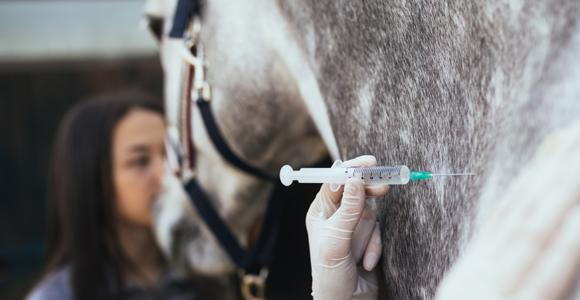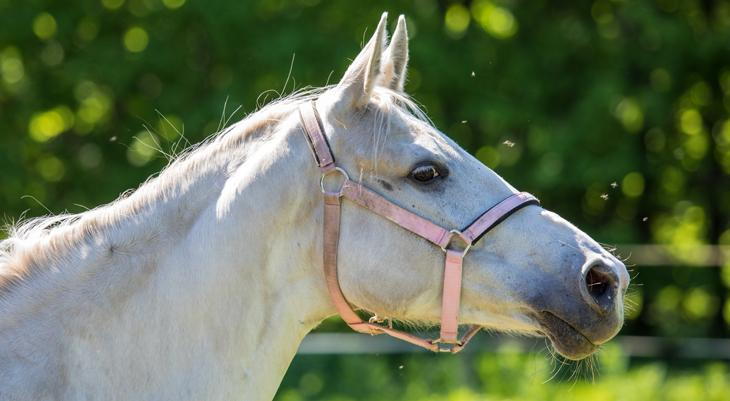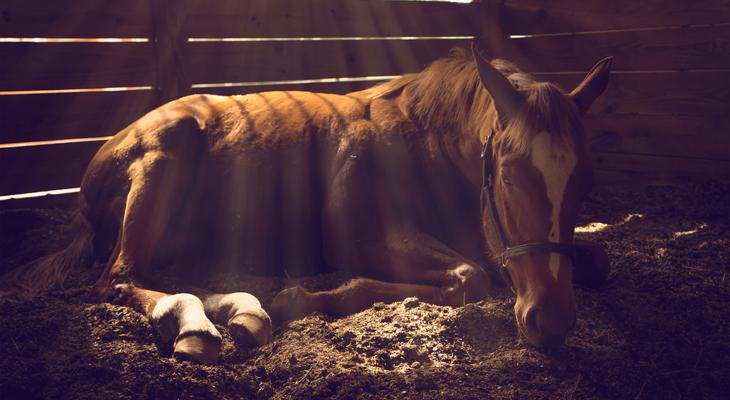Which Vaccinations Does Your Horse Need?

When it comes to keeping your horse healthy, vaccinations are at the front line. While it’s important to do many other things to ensure your horse’s health is at an optimum, without vaccinations, it’s likely that your horse won’t be as healthy as it should be or could have been.
Your equine veterinarian can be relied upon to keep your horse properly vaccinated. But knowing which vaccinations your horse needs will help you to stay informed, plan accordingly and budget as needed.
This way, you and your equine veterinarian form a team that is committed to keeping your horse up-to-date on all of its vaccinations for a lifetime of good health. Here are the most important vaccinations that a horse should receive:
Rabies
Rabies is a terrible disease that is 100% fatal in horses. The resulting symptoms are torturous for the horse to endure and for the owner to witness. Unfortunately, it’s all too easy for a horse to be infected with rabies.
In horses, infection typically occurs through the bite of an animal already infected with rabies. This is usually a fox, skunk, bat, or raccoon. Rabies vaccination is also crucial because it won’t be evident immediately. If the horse does contact rabies and then bites a member of your family, they, too, can get rabies.
EEE (Eastern Equine Encephalomyelitis)
The EEE virus is 90% fatal in horses and readily contracted by horses. Because horses are being constantly berated by mosquitos, the major carriers of EEE, this is one vaccination that cannot be ignored. EEE actually comes from birds, but mosquitoes feed on the bird, then bite the horse, which quickly succumbs to the disease.
WEE (Western Equine Encephalomyelitis)
This disease is very similar to EEE, but is more commonly found in western parts of the United States. Unfortunately, a horse owner can’t assume that their horse won’t be exposed to either EEE or WEE, so both vaccinations are needed.
West Nile Virus

This is another virus that has come to the United States through the mosquito. Again, the mosquito feeds on an infected bird and then transmits it to the horse. West Nile virus is 33% fatal in horses, which is reason enough to ensure that your horse receives this vaccination.
Tetanus
Tetanus is a bacterial infection that can occur in both humans and animals, including horses. It is 75% fatal in equines. Tetanus is caused by the presence of certain bacteria that can be found in the soil. If your horse has any kind of open wound—even a small abrasion—the bacteria can get in and become a full-blown tetanus infection. A simple vaccination protects your horse from tetanus.
These are the five core vaccinations that every horse should have, whether they are stabled at home with the owner or whether they are boarded.
There are also other vaccinations that your horse may need, which are dependent upon your horse’s unique lifestyle and condition. These are referred to as risk-based vaccinations. Your equine veterinarian will let you know whether or not your horse needs other vaccinations. But in general, they include:
Anthrax
Anthrax is caused by bacteria that can live in the soil for years or even decades. Horses can get anthrax from ingesting anthrax spores during grazing. In horses, anthrax is acute, but symptoms can be problematic. They include loss of appetite, fever, depression, trembling, and more.
Botulism
Botulism is a spore-borne bacteria that can infect horses while grazing or rolling around in bacteria-laden soil. It’s a very potent toxin in horses and can cause paralysis, muscle weakness, inability to swallow, and more. It is often fatal.
Potomac Horse Fever
This disease is named so because it is most commonly found among horses that live near the Potomac River. It shows up on a seasonal basis and while it is only between 5% and 30% fatal in horses, symptoms are bad. They include fever, diarrhea, colic, and laminitis. In pregnant horses, Potomac Horse Fever can cause abortion.
Rotaviral Diarrhea
This is caused by a certain strain of the rotavirus. It’s one of the most common causes of diarrhea in foals and rarely occurs in horses aged six months or more. Symptoms include maldigestion, cellular destruction, and, of course, diarrhea.
Equine Influenza

Equine influenza is one of the most common respiratory tract diseases that horses get. In general, influenza is considered a pandemic in horses in the U.S. and in much of the world. It’s highly contagious, so if one of your horses gets it, it’s likely that your entire stable of horses will be at risk. Vaccination is readily available, so there’s no reason not to get your horse vaccinated against equine influenza.
Rhinopneumonitis
Also known as equine herpesvirus, rhinopneumonitis infects the respiratory tract of horses. Symptoms include fever, lethargy, cough, anorexia, nasal discharge, and more.
Strangles
Strangles is also known as the more common name of distemper. It’s caused by bacteria and is highly contagious. It typically infects younger horses, but technically any horse can acquire strangles.
Equine Viral Arteritis
This is another contagious disease that affects horses and is avoidable with a vaccine. It’s not considered life-threatening to adult horses, but it can cause abortion in pregnant horses. It can also affect stallions long-term, possibly causing issues with any foal bred by that stallion.
At-risk vaccines like the ones noted above are recommended on a case-by-case basis by your equine veterinarian. Whether your horse needs any at-risk vaccines will depend on its individual circumstances.
With all the vaccines available to keep your horse healthy, there’s no reason not to protect with equine vaccines. Consult with your equine vet to ensure that your horse receives the proper vaccines on the right schedule.

